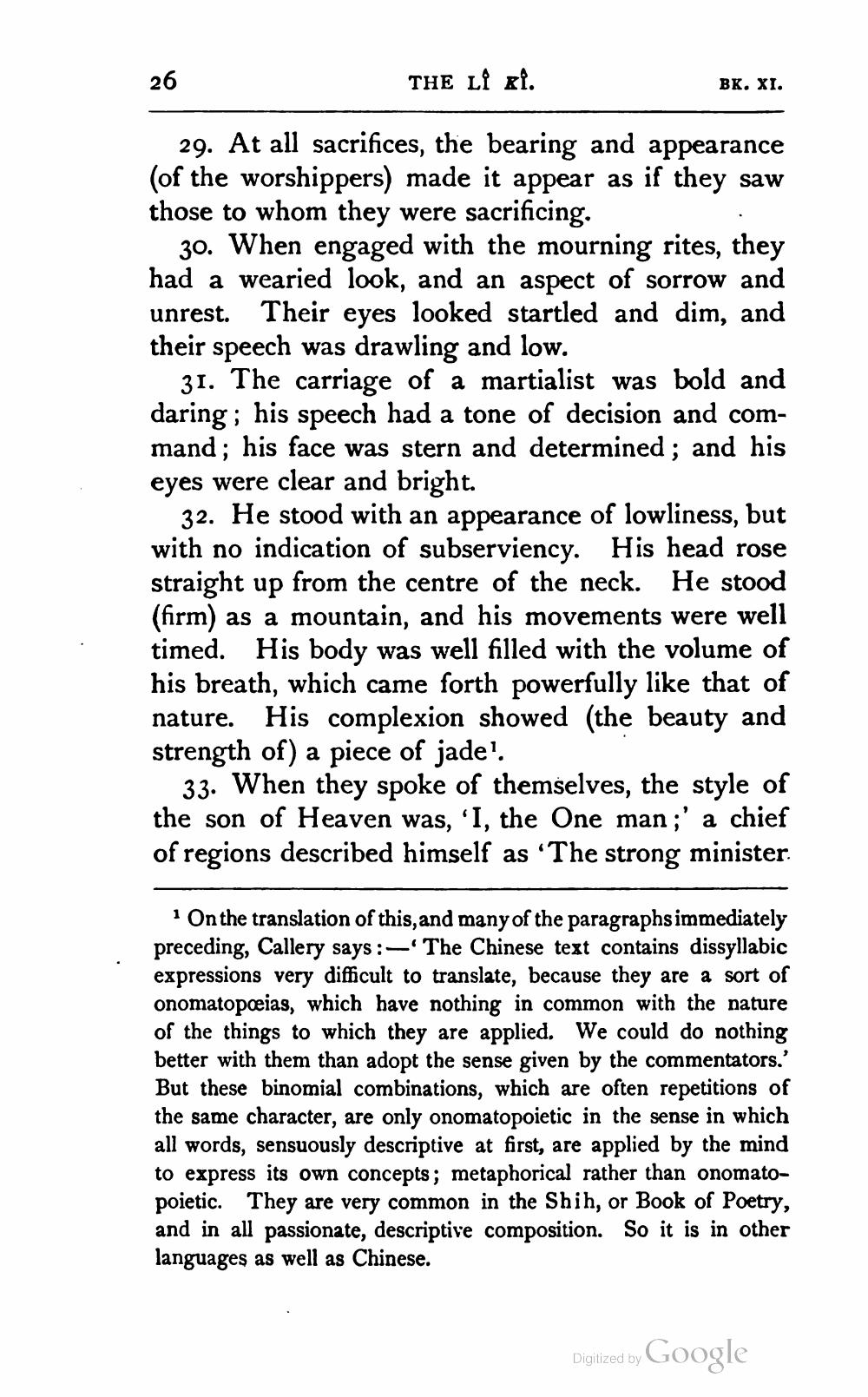________________
26
THE Lİ Kİ.
29. At all sacrifices, the bearing and appearance (of the worshippers) made it appear as if they saw those to whom they were sacrificing.
30. When engaged with the mourning rites, they had a wearied look, and an aspect of sorrow and unrest. Their eyes looked startled and dim, and their speech was drawling and low.
31. The carriage of a martialist was bold and daring; his speech had a tone of decision and command; his face was stern and determined; and his eyes were clear and bright.
32. He stood with an appearance of lowliness, but with no indication of subserviency. His head rose straight up from the centre of the neck. He stood (firm) as a mountain, and his movements were well timed. His body was well filled with the volume of his breath, which came forth powerfully like that of nature. His complexion showed (the beauty and strength of) a piece of jade1.
33. When they spoke of themselves, the style of the son of Heaven was, 'I, the One man;' a chief of regions described himself as 'The strong minister.
BK. XI.
1 On the translation of this, and many of the paragraphs immediately preceding, Callery says:-'The Chinese text contains dissyllabic expressions very difficult to translate, because they are a sort of onomatopoeias, which have nothing in common with the nature of the things to which they are applied. We could do nothing better with them than adopt the sense given by the commentators.' But these binomial combinations, which are often repetitions of the same character, are only onomatopoietic in the sense in which all words, sensuously descriptive at first, are applied by the mind to express its own concepts; metaphorical rather than onomatopoietic. They are very common in the Shih, or Book of Poetry, and in all passionate, descriptive composition. So it is in other languages as well as Chinese.
Digitized by
Google




